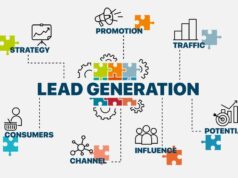Insurance agencies are businesses that act as intermediaries between insurance companies and consumers. Several types of insurance agencies are available, each with its benefits and drawbacks. Understanding the differences between these types of agencies is essential for selecting the right one to meet your insurance needs.
This article provides a comprehensive look at the different types of insurance agencies available. It also compares and contrasts these agency types based on factors, such as cost, convenience, choice of insurance products, level of customization, and customer service, and offers tips on how to select the best agency for your specific insurance needs.
Introduction to Insurance Agencies

Insurance agencies are businesses that sell insurance policies to individuals and organizations. These policies can include health, life, property, casualty, and liability insurance. Insurance agents work to understand their client’s needs and recommend policies that provide the appropriate level of coverage. They also help clients manage claims and ensure they receive the proper compensation for damages or losses.
IBIS World notes that in 2024, the insurance agencies industry has a revenue-based market size of $210.4 billion. Between 2018 and 2024, the market size of the industry in the US has grown by an average of 1.5% per year. Overall, the market size of the insurance agencies industry in the US has remained stable when compared to the economy as a whole.
Hilb Group of Florida is an example of an insurance agency that provides a range of insurance solutions to its clients. Their services include commercial and personal insurance, employee benefits, and risk management.
Insurance agencies have a team of experienced professionals who work to provide their clients with the best possible insurance solutions. To learn more about insurance agencies and how they can help you protect your assets, you can visit Hilb Group of Florida’s website.
Let us now take a look at the different types of insurance agencies.
Captive Insurance Agencies

A captive insurance agency is a type of insurance agency that works exclusively with a single insurance carrier. Captive agencies are typically owned and operated by the insurance carrier, and their agents are only able to offer insurance products from that carrier.
While captive agencies may offer competitive rates and specialized knowledge of the carrier’s products, they may also be limited in terms of insurance options and flexibility.
Independent Insurance Agencies
Independent insurance agencies are not affiliated with any particular insurance carrier, giving them the flexibility to offer a range of insurance products from multiple carriers. They are typically owned and operated by individual agents or small groups of agents.
Independent agencies may offer more personalized service, wider insurance options, and competitive rates, but they may also be less specialized in particular types of insurance.
Direct Writer Insurance Agencies

Investopedia defines a direct writer, also known as a captive agent, as an insurance agent who exclusively offers policies from a particular company. As a result, they have limited options for products to offer clients and cannot search for the best policy at the best price. Instead, they provide clients with the best available plan at the best possible price among the options presented by the provider who pays their salary.
Managing General Agents (MGAs)
Managing general agents (MGAs) are specialized insurance agencies that work on behalf of insurance carriers to underwrite and manage insurance policies. They have the authority to bind and support policies on behalf of the insurance carrier and may work with independent agents to distribute policies.
MGAs are particularly useful for insurance carriers who lack the expertise or capacity to handle certain types of insurance policies. The benefits of working with an MGA include specialized knowledge and expertise in specific insurance areas, while the drawbacks may include limited product offerings and a potential conflict of interest between the MGA and the insurance carrier.
Online Insurance Agencies

Online insurance agencies are a type of insurance agency that operates entirely online. Customers can research, compare and purchase insurance policies on the agency’s website without ever having to meet an agent in person.
Online insurance agencies offer convenience and accessibility, as customers can access insurance information and purchase policies anytime from anywhere. They may also offer competitive rates due to their lower overhead costs. However, some customers may find the lack of personal interaction and advice to be a disadvantage, and online agencies may have limitations in terms of insurance product offerings and customization options.
According to Allied Market Research, the online insurance market is categorized by enterprise size, end-user, insurance type, and region. The market is divided into large enterprises and SMEs based on enterprise size and into life insurance, health insurance, motor insurance, and others based on insurance type.
In 2021, the global online insurance market was worth $53.2 billion and is expected to grow at a compound annual growth rate (CAGR) of 20.2% from 2022 to 2031, reaching a value of $330.1 billion by 2031.
Insurance Brokers

Insurance brokers are independent professionals who work on behalf of clients to find the best insurance policies to meet their needs. They are not tied to any particular insurance carrier, which allows them to offer a wider range of products and services. Insurance brokers work with clients to identify their needs and then shop around to find policies that meet those needs.
The benefits of working with an insurance broker include personalized service, access to a wide range of insurance options, and expert advice. However, the drawbacks may include higher fees, a potential for conflict of interest if the broker receives commissions from insurance carriers, and limited control over the policy selection process.
Considerations When Choosing an Insurance Agency
When choosing an insurance agency, there are several considerations to keep in mind. First, evaluate your insurance needs and determine which agency can offer the most appropriate coverage. Consider your budget and determine if the agency’s rates are competitive.
Assess the agency’s level of expertise and determine if they have experience in the area of insurance that you need. Consider your personal preferences, such as whether you prefer personal interaction with an agent or the convenience of an online agency.
It’s also important to review the agency’s reputation and customer service. By considering these factors, you can select an agency that best meets your needs and preferences.
Conclusion
Choosing the right insurance agency is an important decision that can impact your financial security and peace of mind. Several types of insurance agencies are available, each with its benefits and drawbacks. By comparing the different types of agencies based on factors such as cost, convenience, choice of insurance products, level of customization, and customer service, you can make an informed decision.









